17 results in Ageing and the Lifecourse Series
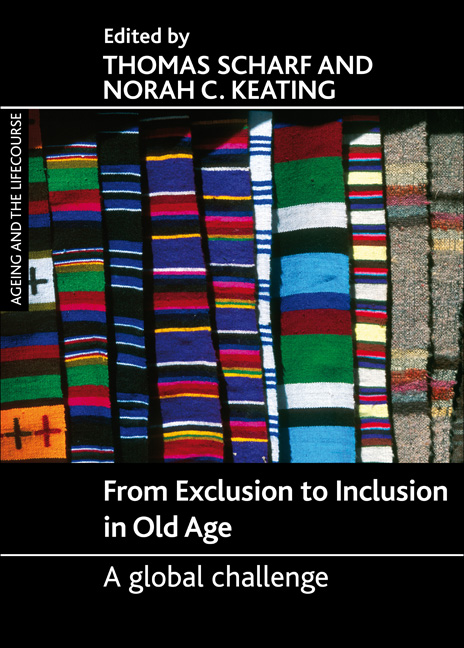
From Exclusion to Inclusion in Old Age
- A Global Challenge
-
- Published by:
- Bristol University Press
- Published online:
- 07 September 2022
- Print publication:
- 27 June 2012
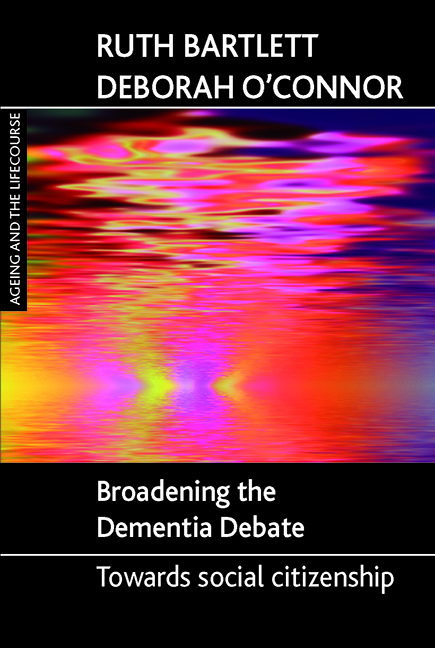
Broadening the Dementia Debate
- Towards Social Citizenship
-
- Published by:
- Bristol University Press
- Published online:
- 01 September 2022
- Print publication:
- 01 June 2010

Transitions and the Lifecourse
- Challenging the Constructions of 'Growing Old'
-
- Published by:
- Bristol University Press
- Published online:
- 01 September 2022
- Print publication:
- 31 January 2012

Ageing and Intergenerational Relations
- Family Reciprocity from a Global Perspective
-
- Published by:
- Bristol University Press
- Published online:
- 01 September 2022
- Print publication:
- 17 February 2010

Belief and Ageing
- Spiritual Pathways in Later Life
-
- Published by:
- Bristol University Press
- Published online:
- 01 September 2022
- Print publication:
- 05 July 2011

Managing the Ageing Experience
- Learning from Older People
-
- Published by:
- Bristol University Press
- Published online:
- 01 September 2022
- Print publication:
- 01 September 2010

Health and Care in Ageing Societies
- A New International Approach
-
- Published by:
- Bristol University Press
- Published online:
- 01 September 2022
- Print publication:
- 16 May 2012

Family Practices in Later Life
-
- Published by:
- Bristol University Press
- Published online:
- 16 July 2022
- Print publication:
- 02 September 2009

Ageing in Urban Neighbourhoods
- Place Attachment and Social Exclusion
-
- Published by:
- Bristol University Press
- Published online:
- 05 July 2022
- Print publication:
- 02 September 2009
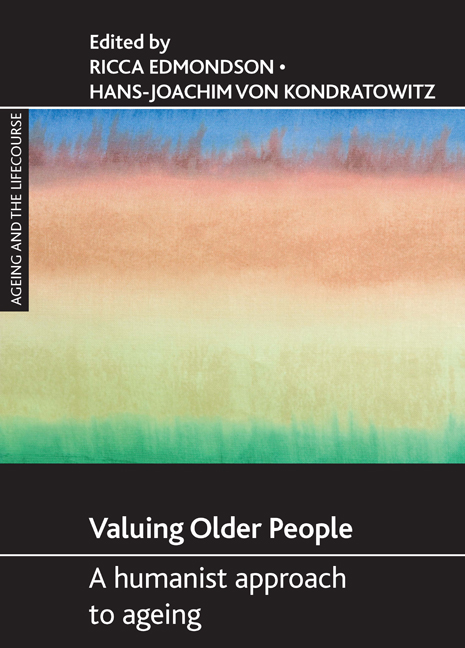
Valuing Older People
- A Humanist Approach to Ageing
-
- Published by:
- Bristol University Press
- Published online:
- 05 July 2022
- Print publication:
- 20 July 2009
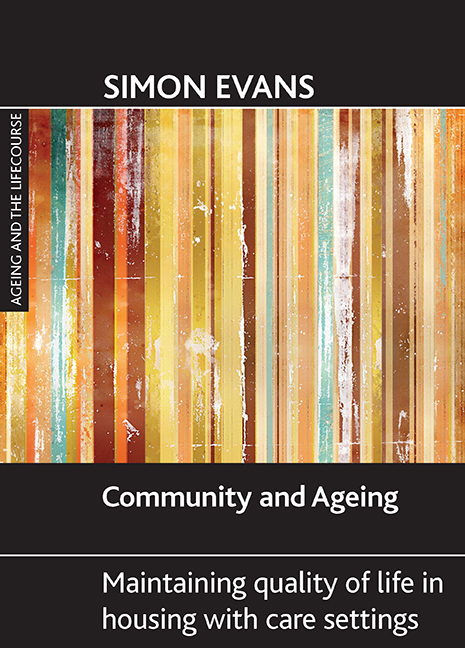
Community and Ageing
- Maintaining Quality of Life in Housing with Care Settings
-
- Published by:
- Bristol University Press
- Published online:
- 05 July 2022
- Print publication:
- 02 September 2009

Population Ageing from a Lifecourse Perspective
- Critical and International Approaches
-
- Published by:
- Bristol University Press
- Published online:
- 11 March 2022
- Print publication:
- 25 March 2015

Ageing, Insight and Wisdom
- Meaning and Practice across the Lifecourse
-
- Published by:
- Bristol University Press
- Published online:
- 10 March 2022
- Print publication:
- 29 June 2015

Ageing with Disability
- A Lifecourse Perspective
-
- Published by:
- Bristol University Press
- Published online:
- 03 February 2022
- Print publication:
- 08 May 2013
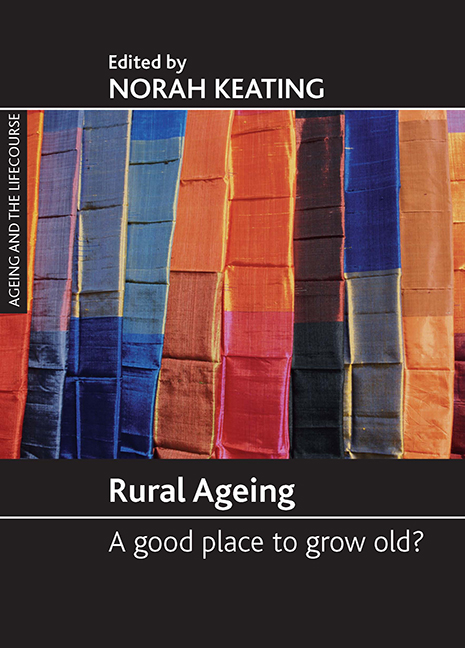
Rural Ageing
- A Good Place to Grow Old?
-
- Published by:
- Bristol University Press
- Published online:
- 19 January 2022
- Print publication:
- 14 May 2008
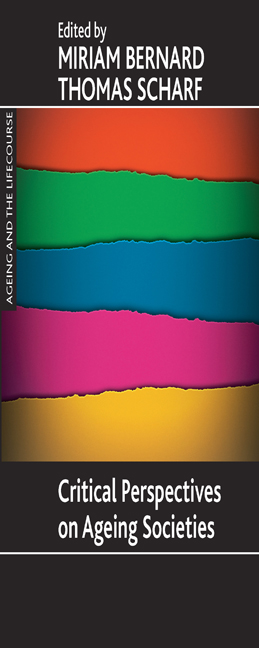
Critical Perspectives on Ageing Societies
-
- Published by:
- Bristol University Press
- Published online:
- 14 January 2022
- Print publication:
- 16 May 2007

Ageing in a Consumer Society
-
- Published by:
- Bristol University Press
- Published online:
- 13 January 2022
- Print publication:
- 01 September 2008

